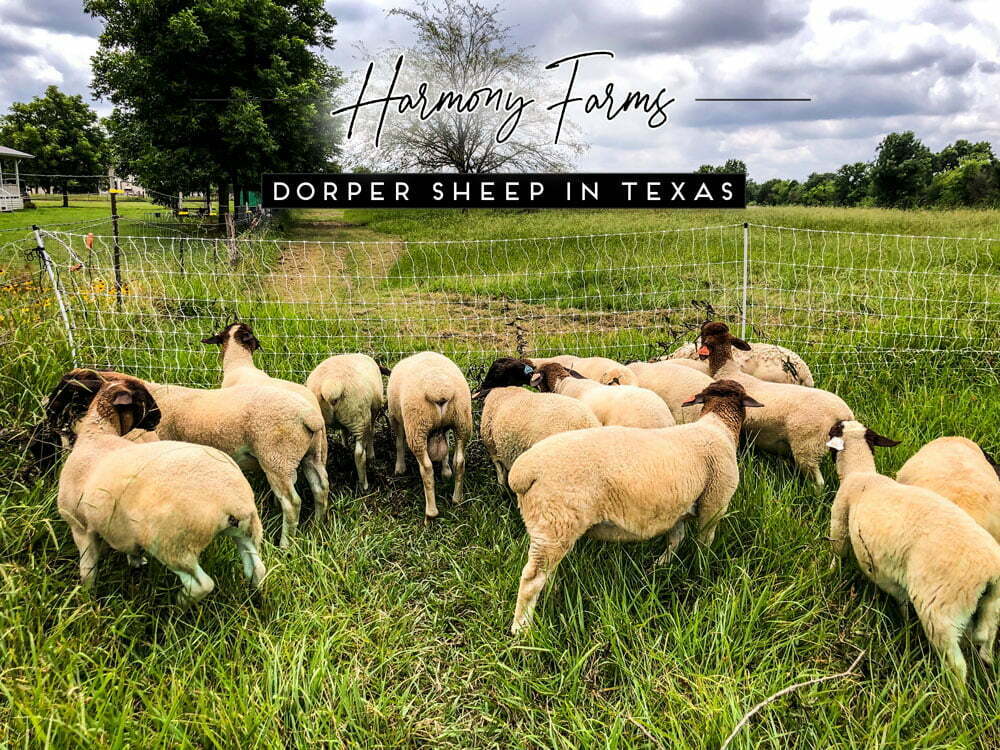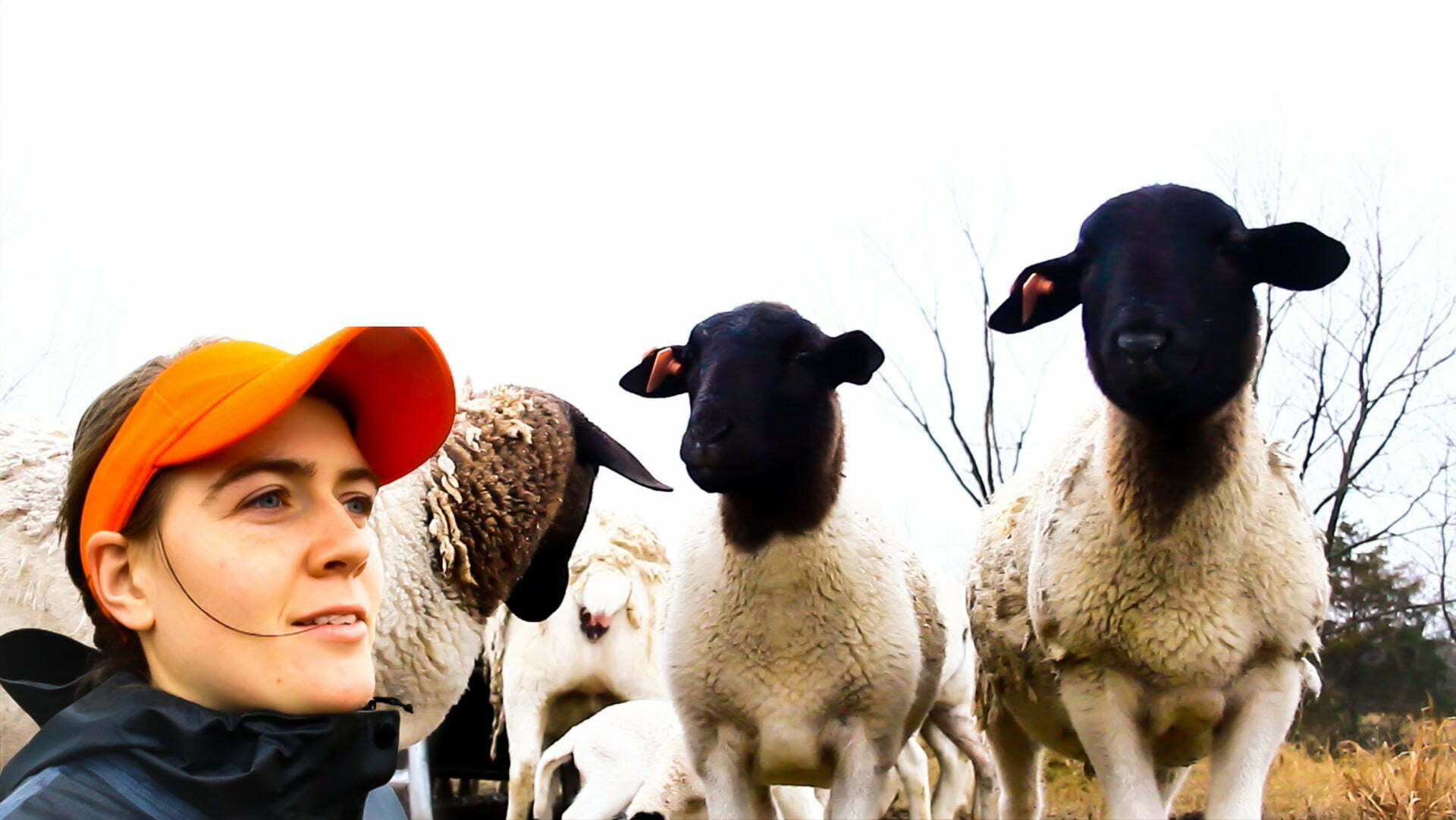Register for Small Farmer Virtual Meetup
I recently came off of a flock expansion project here at Harmony Farms. I brought back a registered full-blood Dorper Ram as well as a selection of registered full-blood ewes. Since announcing this expansion project I have been asked if I would explain the process of sourcing livestock from a beginner perspective. This post is going to outline my process in 3 sections: what to avoid, what to ask before buying, and how to handle the new animals once they are back to your farm.
First and foremost: know your seller and their operation. When you are buying in livestock, you are not only bringing a new animal to your farm, you are bringing in the system it was raised on. I know this from both good and bad experience.
I bought from various sources in this expansion project. One of these sources was very bad. It was a “$ Great Deal $” on a registered ewe. Once I was onsite I became aware that this sheep was raised in confinement and had eaten nothing but corn and molasses it’s whole life. Bringing this animal home was a decision I am not proud of. Long story short, the animal came back and showed almost immediate signs of infection in her udders. Once I paid for vet bills, antibiotics, and extended quarantine procedures I ended up with a sheep that cost me 3 times it’s initial purchase price. This “$Great deal$” is now on the cull list because her udders are so badly damaged by mastitis that I doubt she is capable of feeding offspring. Long story short: beware of a “great deal”.
On the flip side, I paid premium for sheep from a beautiful grass-based system. I brought the sheep home and they integrated seamlessly into my grass-based operation with no hassle. Worth every penny of the premium price.
What to avoid when buying sheep:
Avoid sale barns as a first time buyer. Farmers and ranchers often use sale barns to liquidate cull-animals. Unless you have a highly experienced eye, you may end up buying diseased livestock. Furthermore, when buying at a sale barn you have little to no connection with how the animal was raised. When you bring an animal back to your farm, you bring it’s previous system with it. BEWARE!!
Avoid confinement sheep. There are specific respiratory and arterial diseases (namely, Ovine Progressive Pneumonia) that thrive in the sheep’s system when raised without access to fresh air and good pasture. Sheep (and pretty much every other livestock) were designed to eat grass, not corn and molasses. If you buy a sheep from a shed, you will probably encounter problems (see my story above).

What to ask before buying:
Congrats! You found what a appears to be a good operation to buy sheep from! Here are some of the questions that I found important when I was buying sheep. Be sure to ask a million questions. Half of them will be things you need to know, the other half will be used to gauge the sellers honesty and transparency. If a breeder is reluctant to answer your questions, give the operation a red flag.
What do you feed this sheep (both during the growing season and over-winter)? This is a pretty base level question, but it will immediately tell you A LOT. Most breeders supplement overwinter, but if you are a grass-based farm you want to bring back an animal that is accustomed to a grass based diet.
What kind of vaccinations did these sheep receive? There are a lot of differing opinions on vaccines in animals. Regardless of your opinion, you need to know whether the animal you are buying has had vaccinations. Some vaccines require annual boosters so you will need to decide whether you are ready to undertake that regimen.
At this point in time, I do not run regular vaccinations on my flock. However, I am in favor of vaccinations for breeding animals. This discussion is for another time, but it is important to know the vaccination record of the animal you are buying.
How do you manage parasites in these sheep? It is very important to maintain the parasite management strategy of the previous owner. Only change the previous parasite management strategy once you have developed a strategy that has proven effective in the animal. Neglecting the maintenance of the breeder’s parasite management will put your sheep at serious risk.
Do you run hoof care? There are a lot of differing opinions in the sheep hoof care arena; but I want to buy a sheep that has it’s hooves maintained. In my opinion, if you do not run regular, preventative maintenance a sheep’s hoof you are asking for trouble. I’ll leave it there with my opinion and let you do your own research on hoof care.
What to do when you bring the sheep back to your farm?
It is advisable to quarantine new animals for 10 days to 8 weeks. The less you know about the source the longer you ought to quarantine the sheep. This portion of my advice doubles back to knowing the operation. Chances are if you have purchased from a clean, reputable source you will not have problems; but if you have not a good quarantine could save your entire operation.
I designated a quarantine pasture for the new sheep. This quarantine pasture is actually my front yard. It is a portion of my acreage that is not in my regular grazing program. If there is any trouble or disease in the new livestock my main flock will have no opportunity to graze the ground they touched.
Watch the new animal like a hawk. Never ignore anything unusual when new livestock is involved. Keep your veterinarian clinic on speed dial.
In conclusion:
Depending on the size of your existing operation, buying in livestock can be one of the riskiest things a farmer or rancher can do. Avoid sale barns as a beginner, do not buy a sheep that have been in confinement, and ask a lot of questions.
While my first major livestock buy-in was not without faults (re: the “$good deal$”), the Lord lead me to some excellent sources and spared me from a lot of trouble. The flock at Harmony Farms is now closed and I will not have a need to bring in new livestock for the foreseeable future. I have 4 sets of Dorper Sheep genetics on the farm. With this genetic diversity, and some deliberate herd (or rather, flock) planning, I should have the capacity to build out some serious quality for generations to come.
-the Shepherdess at Harmony Farms

thank you for the info and tips, this will save a lot of time, frustration, and heartbreak
I certainly hope so! Thank you for commenting.
-the Shepherdess
Thank you so much for sharing your knowledge and experience! This will definitely help.
Your sheep are beautiful!!
Thank you, Maggie! I so appreciate your support.
-the Shepherdess